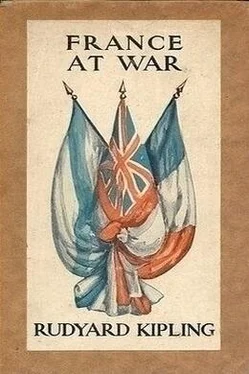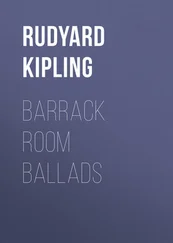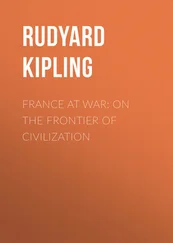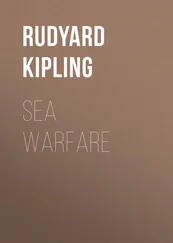Rudyard Kipling - France at War
Здесь есть возможность читать онлайн «Rudyard Kipling - France at War» весь текст электронной книги совершенно бесплатно (целиком полную версию без сокращений). В некоторых случаях можно слушать аудио, скачать через торрент в формате fb2 и присутствует краткое содержание. Год выпуска: 2014, Издательство: epubBooks Classics, Жанр: Биографии и Мемуары, prose_military, на английском языке. Описание произведения, (предисловие) а так же отзывы посетителей доступны на портале библиотеки ЛибКат.
- Название:France at War
- Автор:
- Издательство:epubBooks Classics
- Жанр:
- Год:2014
- ISBN:нет данных
- Рейтинг книги:4 / 5. Голосов: 1
-
Избранное:Добавить в избранное
- Отзывы:
-
Ваша оценка:
- 80
- 1
- 2
- 3
- 4
- 5
France at War: краткое содержание, описание и аннотация
Предлагаем к чтению аннотацию, описание, краткое содержание или предисловие (зависит от того, что написал сам автор книги «France at War»). Если вы не нашли необходимую информацию о книге — напишите в комментариях, мы постараемся отыскать её.
and
.
France at War — читать онлайн бесплатно полную книгу (весь текст) целиком
Ниже представлен текст книги, разбитый по страницам. Система сохранения места последней прочитанной страницы, позволяет с удобством читать онлайн бесплатно книгу «France at War», без необходимости каждый раз заново искать на чём Вы остановились. Поставьте закладку, и сможете в любой момент перейти на страницу, на которой закончили чтение.
Интервал:
Закладка:
V
Life in Trenches on the Mountain Side
Very early in the morning I met Alan Breck, with a half–healed bullet–scrape across the bridge of his nose, and an Alpine cap over one ear. His people a few hundred years ago had been Scotch. He bore a Scotch name, and still recognized the head of his clan, but his French occasionally ran into German words, for he was an Alsatian on one side.
"This," he explained, "is the very best country in the world to fight in. It's picturesque and full of cover. I'm a gunner. I've been here for months. It's lovely."
It might have been the hills under Mussoorie, and what our cars expected to do in it I could not understand. But the demon–driver who had been a road–racer took the 70 h.p. Mercedes and threaded the narrow valleys, as well as occasional half–Swiss villages full of Alpine troops, at a restrained thirty miles an hour. He shot up a new–made road, more like Mussoorie than ever, and did not fall down the hillside even once. An ammunition–mule of a mountain–battery met him at a tight corner, and began to climb a tree.
"See! There isn't another place in France where that could happen," said Alan. "I tell you, this is a magnificent country."
The mule was hauled down by his tail before he had reached the lower branches, and went on through the woods, his ammunition–boxes jinking on his back, for all the world as though he were rejoining his battery at Jutogh. One expected to meet the little Hill people bent under their loads under the forest gloom. The light, the colour, the smell of wood smoke, pine–needles, wet earth, and warm mule were all Himalayan. Only the Mercedes was violently and loudly a stranger.
"Halt!" said Alan at last, when she had done everything except imitate the mule.
"The road continues," said the demon–driver seductively.
"Yes, but they will hear you if you go on. Stop and wait. We've a mountain battery to look at."
They were not at work for the moment, and the Commandant, a grim and forceful man, showed me some details of their construction. When we left them in their bower—it looked like a Hill priest's wayside shrine—we heard them singing through the steep–descending pines. They, too, like the 75's, seem to have no pet name in the service.
It was a poisonously blind country. The woods blocked all sense of direction above and around. The ground was at any angle you please, and all sounds were split up and muddled by the tree–trunks, which acted as silencers. High above us the respectable, all–concealing forest had turned into sparse, ghastly blue sticks of timber—an assembly of leper–trees round a bald mountain top. "That's where we're going," said Alan. "Isn't it an adorable country?"
TRENCHES
A machine–gun loosed a few shots in the fumbling style of her kind when they feel for an opening. A couple of rifle shots answered. They might have been half a mile away or a hundred yards below. An adorable country! We climbed up till we found once again a complete tea–garden of little sunk houses, almost invisible in the brown–pink recesses of the thick forest. Here the trenches began, and with them for the next few hours life in two dimensions—length and breadth. You could have eaten your dinner almost anywhere off the swept dry ground, for the steep slopes favoured draining, there was no lack of timber, and there was unlimited labour. It had made neat double–length dug–outs where the wounded could be laid in during their passage down the mountain side; well–tended occasional latrines properly limed; dug–outs for sleeping and eating; overhead protections and tool–sheds where needed, and, as one came nearer the working face, very clever cellars against trench–sweepers. Men passed on their business; a squad with a captured machine–gun which they tested in a sheltered dip; armourers at their benches busy with sick rifles; fatigue–parties for straw, rations, and ammunition; long processions of single blue figures turned sideways between the brown sunless walls. One understood after a while the nightmare that lays hold of trench–stale men, when the dreamer wanders for ever in those blind mazes till, after centuries of agonizing flight, he finds himself stumbling out again into the white blaze and horror of the mined front—he who thought he had almost reached home!
IN THE FRONT LINE
There were no trees above us now. Their trunks lay along the edge of the trench, built in with stones, where necessary, or sometimes overhanging it in ragged splinters or bushy tops. Bits of cloth, not French, showed, too, in the uneven lines of debris at the trench lip, and some thoughtful soul had marked an unexploded Boche trench–sweeper as "not to be touched." It was a young lawyer from Paris who pointed that out to me.
We met the Colonel at the head of an indescribable pit of ruin, full of sunshine, whose steps ran down a very steep hillside under the lee of an almost vertically plunging parapet. To the left of that parapet the whole hillside was one gruel of smashed trees, split stones, and powdered soil. It might have been a rag–picker's dump–heap on a colossal scale.
Alan looked at it critically. I think he had helped to make it not long before.
"We're on the top of the hill now, and the Boches are below us," said he. "We gave them a very fair sickener lately."
"This," said the Colonel, "is the front line."
There were overhead guards against hand–bombs which disposed me to believe him, but what convinced me most was a corporal urging us in whispers not to talk so loud. The men were at dinner, and a good smell of food filled the trench. This was the first smell I had encountered in my long travels uphill—a mixed, entirely wholesome flavour of stew, leather, earth, and rifle–oil.
FRONT LINE PROFESSIONALS
A proportion of men were standing to arms while others ate; but dinner–time is slack time, even among animals, and it was close on noon.
"The Boches got their soup a few days ago," some one whispered. I thought of the pulverized hillside, and hoped it had been hot enough.
We edged along the still trench, where the soldiers stared, with justified contempt, I thought, upon the civilian who scuttled through their life for a few emotional minutes in order to make words out of their blood. Somehow it reminded me of coming in late to a play and incommoding a long line of packed stalls. The whispered dialogue was much the same: "Pardon!" "I beg your pardon, monsieur." "To the right, monsieur." "If monsieur will lower his head." "One sees best from here, monsieur," and so on. It was their day and night–long business, carried through without display or heat, or doubt or indecision. Those who worked, worked; those off duty, not five feet behind them in the dug–outs, were deep in their papers, or their meals or their letters; while death stood ready at every minute to drop down into the narrow cut from out of the narrow strip of unconcerned sky. And for the better part of a week one had skirted hundreds of miles of such a frieze!
The loopholes not in use were plugged rather like old–fashioned hives. Said the Colonel, removing a plug: "Here are the Boches. Look, and you'll see their sandbags." Through the jumble of riven trees and stones one saw what might have been a bit of green sacking. "They're about seven metres distant just here," the Colonel went on. That was true, too. We entered a little fortalice with a cannon in it, in an embrasure which at that moment struck me as unnecessarily vast, even though it was partly closed by a frail packing–case lid. The Colonel sat him down in front of it, and explained the theory of this sort of redoubt. "By the way," he said to the gunner at last, "can't you find something better than that?" He twitched the lid aside. "I think it's too light. Get a log of wood or something."
Читать дальшеИнтервал:
Закладка:
Похожие книги на «France at War»
Представляем Вашему вниманию похожие книги на «France at War» списком для выбора. Мы отобрали схожую по названию и смыслу литературу в надежде предоставить читателям больше вариантов отыскать новые, интересные, ещё непрочитанные произведения.
Обсуждение, отзывы о книге «France at War» и просто собственные мнения читателей. Оставьте ваши комментарии, напишите, что Вы думаете о произведении, его смысле или главных героях. Укажите что конкретно понравилось, а что нет, и почему Вы так считаете.












